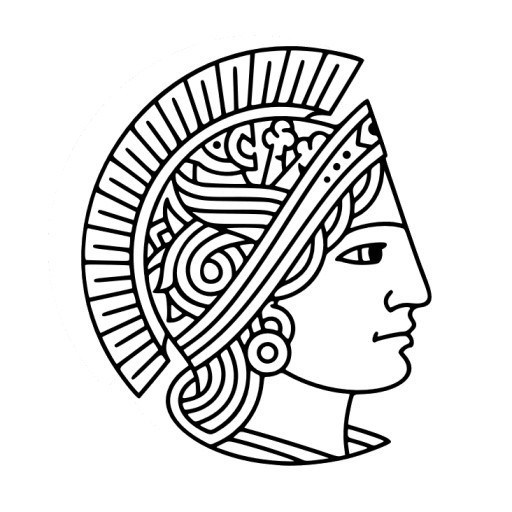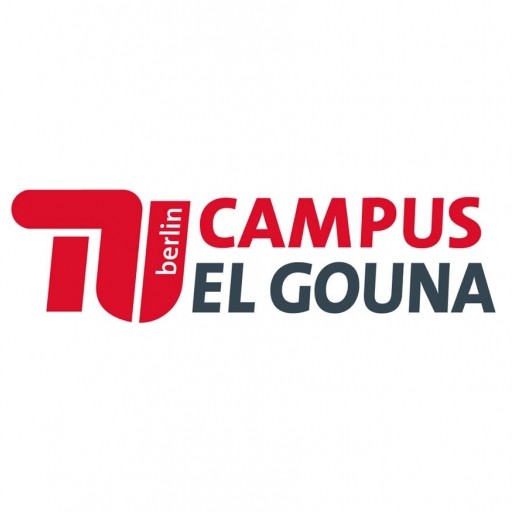The Master's degree program in Applied Economics and International Economic Policy at the University of Wuppertal offers students an in-depth understanding of economic theories and their practical applications within the global context. Designed for individuals interested in analyzing economic issues from an applied perspective, this program focuses on the development of analytical skills, economic modeling, and policy evaluation. Students will explore a broad range of topics including macroeconomic and microeconomic analysis, international trade, monetary policy, financial markets, and development economics. The curriculum emphasizes theoretical foundations as well as empirical methods, enabling graduates to assess economic policies and contribute to decision-making processes in governmental, international, and private sector organizations.
The program aims to prepare students for careers in economic consulting, international organizations, policy advisory roles, or further academic pursuits. It combines rigorous coursework with practical project work, often involving case studies and real-world data analysis. Students will have the opportunity to learn about contemporary economic challenges such as globalization, economic integration, sustainability, and inequality, and to develop strategies for addressing these issues effectively. The program promotes a multidisciplinary approach, integrating perspectives from political science, sociology, and international relations to provide a comprehensive understanding of economic phenomena and policy impacts.
Students benefit from the faculty’s expertise through engaging lectures, seminars, and workshops led by experienced researchers and practitioners. The program also offers opportunities for internships and collaborations with economic institutions, enhancing practical experience and professional networking. With a focus on international economic policy, the program prepares graduates to work in diverse environments across the globe, equipped with the skills necessary to analyze and shape economic policies that promote sustainable growth and development. Graduates will be well-positioned to assume influential roles in academia, government agencies, think tanks, and international organizations, contributing to shaping effective, evidence-based economic policies in a complex and interconnected world.
Educational organisation
StructureEach of the four modules in the compulsory part (Pflichtbereich) must be studied. Additionally, three modules must be chosen from the various modules offered in the elective part (Wahlpflichtbereich). Two seminars must also be completed. In the supplementary part (Ergänzungsbereich), either one module can be chosen from all the Master's modules on offer, or, alternatively, a third seminar can be selected. According to §12 of the examination regulations, not all modules can be studied or combined with each other. Successful completion of each module and each seminar is awarded with 10 credit points, the Master's thesis with 20 credit points.
Compulsory Part (Pflichtbereich, four modules)
MWiWi 1.19 International Corporate Governance
MWiWi 2.5 International Macroeconomics and Globalisation
MWiWi 2.13 Advanced Microeconomics and Public Finance
MWiWi 4.2 Applied Econometrics
Elective Part (Wahlpflichtbereich, three modules)
MWiWi 1.1 Controlling
MWiWi 1.4 Innovations- und Technologiemanagement
MWiWi 1.9 Kapitalmarkttheorie und Portfoliomanagement
MWiWi 1.10 Strategic Service Management
MWiWi 2.2 Economic Integration and the World Economy
MWiWi 2.3 Employment Theories and Policies
MWiWi 2.6 Economics of Innovation
MWiWi 2.8 International Economics
MWiWi 2.11 Health Economics
MWiWi 2.12 Environmental Economics and International Policy Issues
MWiWi 4.6 Mathematics
Seminars
Two seminars must be studied. These two seminars must be assigned to modules which have already been completed in the course of the study programme, or which will be completed in the further course of the study programme.
Supplementary Part
Any module from all the Master's modules on offer may be studied. Alternatively, a third seminar can be chosen. This third seminar must however be assigned to a module which has already been completed in the course of the study programme, or which will completed in the further course of the study programme. Alternatively, a (research oriented) internship can be completed. An internship enables students to obtain professional experience in an integrated manner during their studies. Relevant contacts will be offered by the Chair.
Master's Thesis
Internships
Voluntary internships at the European Institute for International Economic Relationships (EIIW) are available (with a salary and limited availability).See: http://www.eiiw.eu
Forms of assessment
100 ECTS for exams (lectures) and semester papers (seminars) plus 20 ECTS for the Master's thesisCourse objectives
Skills to be acquired (please note: requirement for starting the programme is basic knowledge in mathematics and statistics; see information at http://welfens.wiwi.uni-wuppertal.de/index.php?id=3314&L=1):Students will learn how to link economic theory and empirical analysis and apply standard and new approaches to economic policy and company strategies. They will also become familiar with how international law influences economic policy. Developing theoretical models in international correlation and deducing empirical hypotheses will be important in their analysis of studies on economic, corporate and political problems.
Career Perspectives:
Participants will be able to derive recommendations from economic theory and empirical analysis. Students will acquire theoretical knowledge in an international context and derive empirically verifiable hypotheses from this theory; moreover, comparative studies on alternative policy approaches will be developed and evaluated. Students will be able to formulate and present political recommendations on the basis of scientific facts. The particular value of this Master's programme is not merely confined to its specialisation as regards its content.
Specific career options include:
- Public Service
- Political Organisations
- International Organisations
- Economic Research Institutes
- Policy Units in Enterprises
- Associations
Language requirements
Applicants must provide proof of their German and English skills.Required English language skills:
- TOEFL iBT (Internet-based): 79 points
- TOEFL PBT (paper-based): 550 points
- IELTS academic module: 6.0 band score
- Cambridge Certificate in Advanced English: level 4
Enrolment is dependent upon proof of the necessary German and English language skills. Foreign students fulfil the language requirements if they can prove a command of the German language corresponding to at least level A2 of the Common European Framework of Reference for Languages (CEFR) (Gemeinsamer Europäischer Referenzrahmen für Sprachen (GER)).
If A2 German skills cannot be proven at the time of application, the applicant may be temporarily accepted if he or she provides proof of German language skills at level A1. Within the first two semesters of the study programme, the applicant must then acquire the required language skills (A2) and document them by means of a language certificate.
Academic requirements
As far as the President of the Bergische Universität Wuppertal is concerned, there is no special set of rules for admission to the Master's programme. However, there are certain prerequisites which applicants must meet (moreover, in the English Option Management and Economics there are specific English language requirements). Admission requires, in accordance with §2 of the Master Examination Rules, successful completion of a Bachelor's programme or Diploma programme in economics, business administration, or mathematical economics (or in other study fields considered as equivalent). The minimum grade is C in accordance with ECTS (if no such degree is shown on the certificate, a 2.5 mark is the minimum). Note that if the number of candidates exceeds capacity, there will be a special selection process based on written or oral examinations. Equivalence of other study fields is given if at least 100 performance points in the Bachelor's programme are related to business and economics (in particular in business administration, economics, business informatics, mathematical economics, methods of economics). Of these 100 credit points, at least 15 credit points must have been obtained in the field of economics, and at least 15 credit points in the field of business administration. In addition to a final written thesis, another 6 credit points must have been obtained through written papers that meet scientific standards.The application must include:
- Completed application form for admission
- Officially certified copies of the school leaving certificate including the transcript of records, and of the Bachelor's or equivalent degree or of the diploma supplement including the transcript of records. If the certificates are in a language other than English, French, or German, an officially certified translation into German or English must also be submitted.
- A short letter of motivation stating your choice and knowledge of the disciplinary science and indicating the format you choose for the entrance examination
- The results of the IELTS/TOEFL test or a document certifying that you have taken your first degree in English. The TOEFL code number for uni-assist is 2727. Indicate this code to the Educational Testing Service so that your scores can be sent directly to them.
Enrolment fees
There are no enrolment fees. Students have to pay a compulsory fee including a social contribution called "Sozialbeitrag", a contribution to the student body called "Studentenschaftsbeitrag", and a fee for the "NRW-Ticket" for public transport within the state of North Rhine-Westphalia. The compulsory fee amounts to about 270 EUR per semester and is not a university fee.Costs of living
A student's monthly expenses is approx. 650-700 EUR. This includes accommodation, general costs, health insurance, and learning materials.Arrival support
See: http://www.international-students-wuppertal.de/Services and support for international students
For the International Office, see: http://www.internationales.uni-wuppertal.de/en/basics/international-office.htmlFor the International Students Team, see: http://www.international-students-wuppertal.de/
For the Hochschulsozialwerk, see: http://www.hochschul-sozialwerk-wuppertal.de/en.html
Accommodation
You can either live in a residence or rent a room/apartment off campus. There are eight on-campus halls of residence with a total capacity of about 1,200 places. The rooms are mostly rented unfurnished. Rent is approx. 200-250 EUR. You can obtain information and apply for a place in a student residence at:http://www.hochschul-sozialwerk-wuppertal.de/en/accommodation/looking-for-accommodation.html
As only a limited number of living quarters are available here, you can also inquire about private accommodation free of charge at the Central Accommodation Office of the Wuppertal University Social Services Office.
See: http://www.hochschul-sozialwerk-wuppertal.de/en/accommodation/contact.html
E-mail: wohnen@hsw.uni-wuppertal.de
See: http://www.hochschul-sozialwerk-wuppertal.de/en/accommodation/private-rooms.html








